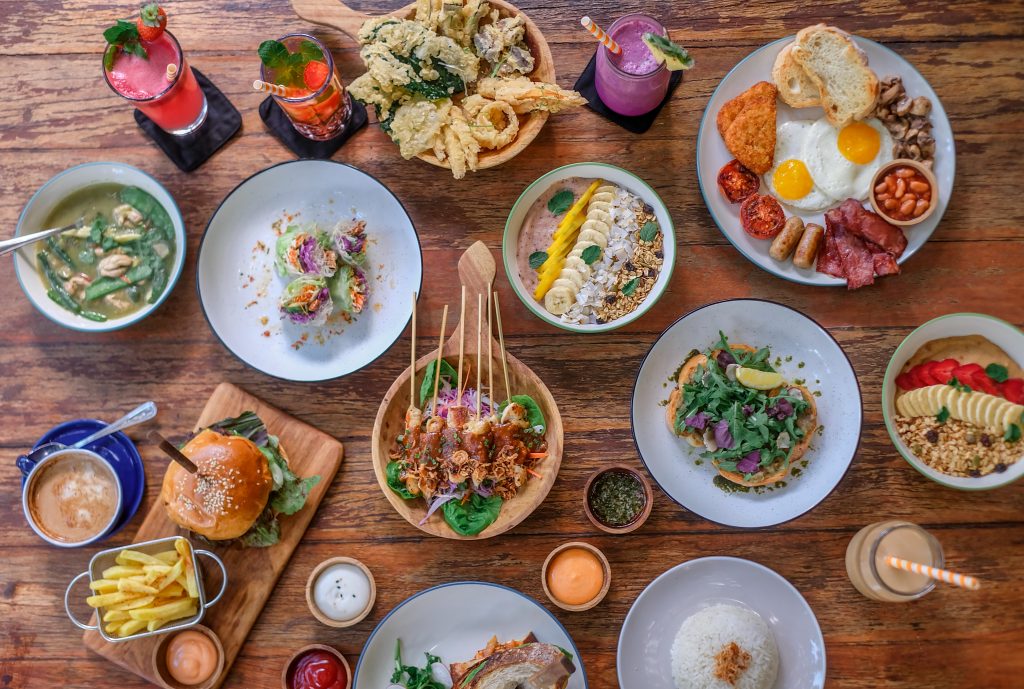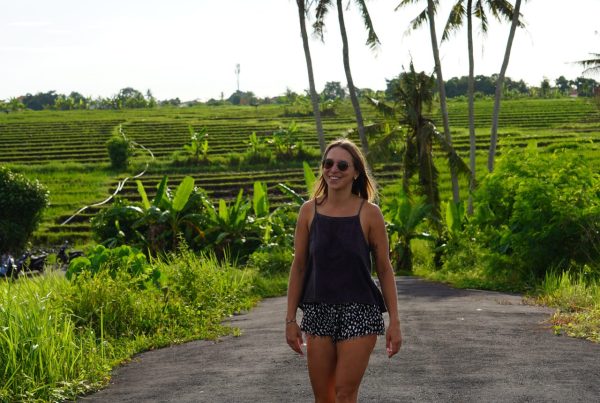Are you thinking of moving to Bali and wanting to start your own business? Has opening a restaurant in Bali been a dream of yours? Here is our step-by-step guide on what you need to know about opening a restaurant in Bali safely.
Why open a restaurant in Bali?
If opening a café or restaurant has been a dream of yours but the upfront investment and commitment seems too expensive back in your home country – high rent charges, payroll and competing with global restaurant and coffee chains – Bali could be the place to bring your independent restaurant vision to life.
It may surprise you, but a lot of people who open a restaurant in Bali do not come from a food and beverage (F&B) background. Instead, they are investors and see the potential for a high return on investment (ROI) that a restaurant business in Bali can produce.
Opening a business in a new country can be a minefield, so it is strongly advised to team up a local based hospitality advisor experienced in Bali’s hospitality climate, who can guide you with Bali specific market trends, legal and due diligence procedures, suppliers and recruitment and contracts in Bali. Indonesia regularly changes laws and operating a new business or industry, as a foreigner with a completely different culture and language can be very difficult, without the right experience and guidance.
The restaurant industry in Bali
Bali’s economy is predominantly tourism driven, Bali is renowned for its strong hospitality sector (hotels, restaurants, beach clubs, cafes) and as a haven for tourists with 5,000,000 visiting Bali every year (pre pandemic), with that number set to increase year on year, Bali is a thriving economy for hospitality and food and beverage (F&B) businesses.
A restaurant’s success potential is about foot traffic and location. Despite the fast growing trends and market demand in Canggu, Pererenan and Uluwatu don’t overlook Ubud, Sanur and Seminyak, post pandemic recovery has shown very strong data in those stable areas too.

What is my return on investment for a resturant business in Bali?
Bali based hospitality company, Habitat Hospitality shared with us that the restaurants they manage in Ubud and Seminyak, the potential for restaurant investment. “For small cafés <65 seats, we are looking at USD 35,000 nett revenue per month with a 12-18% of that amount in profit. Meanwhile a >65 seats mid-tier restaurant of 200 sqm-300 sqm in a good location, in central Seminyak and/or central Ubud (both tourism hotspots) can generate USD 55,000 nett revenue average per month, with a 12-18% profit margin” – Ben Karmadi, Habitat Hospitality
Make sure to start opening a restaurant between March-April to build a good cashflow. Don’t open a restaurant between September – November because it’s the low, rainy season, which deters people to travel and traffic in the rain is higher than in the drier months.”

4 key steps to starting a restaurant in Bali
1. Setting up your company in Bali
This is a step not to be taken without careful consideration and caution. It’s strongly advised to work with a Bali based hospitality consultant, especially if you are new to the industry and new to Bali. Both need to be managed by a trusted and experienced restaurant consultant and management company. Habitat Hospitality have worked with both local and foreign investors in setting up, consulting and managing restaurant and hospitality spaces in Bali since 2015. Their range of clients includes Café Del Mar Bali, The Sayan House, Union Ubud, Seniman Coffee, JONOs Artisan Butchers, Shotgun Social and many more.
Currently for foreign investors in Indonesia, you can own 100% of the business for hospitality. Before finalising all paperwork make sure to check the negative list to get the legal permit, you need to set up a PT PMA (Foreign owned LLC/PTY Ltd registered company in Indonesia).
“This investment can be done in stages and can be used as capital expenditure, contrary to what people believe they need to keep the money in one block in the bank. This could be used for the land purchase or building lease, construction costs, equipment purchase recruitment (anything to generate your business). All of these needs to be reported to the investment board.”
Ben Karmadi, Habitat Hospitality
As you’ll learn, rules and legislations in Indonesia change regularly so you need to work with an experienced and up to date tax consultant and business advisor to help you with these changes. You need to think about your investment capital and speak to a consultant in Bali about how that could translate into the following:
- Buying an existing restaurant business (changing the management, ownership, taking over the lease agreement contract, buying the “brand”)
- Buying or leasing an existing property to convert into a restaurant. This could be an existing struggling restaurant you renovate and rebrand, using the “shell” for layout and kitchen etc.
- Finding land and building from scratch, either as a freehold or leasehold purchase (working within and checking the right zoning – red, “commercial” zoning, yellow “residential” zoning where you can have a small café that can open during the day, not into the evening, and then green zoning “no build” agricultural and protected land). There have been many cases where people have unintentionally bought land in the wrong zoning and then cannot build and/or run a business! So this is not to be done quickly or cheaply without the right advisors and lawyers, it’s a small price to pay upfront than having a huge financial regret later on.
Once your company is set up, the working VISAs (KITAS) for you as a foreign investor with due diligence, you can then, with your concept, begin looking for your location.
2. Concept and Financial forecasting
This is a step not to be taken lightly, but often people don’t pay attention to the details. You need to do proper market research and know if your business idea will work and have longevity in the market in Bali. What is your Unique Selling Point? What are your competitors doing? Who is your target market? What is your price point and revenue streams?
Ultimately, you need to know how your business will make money and when. You will need to set up a financial forecast, this includes set up costs (construction, renovation, supplies, kitchen fit, furniture etc.), staff numbers (operations org chart), payroll figures, equipment, sales projections, KPIs, revenue streams to then know your month by month and year by year targets and ROI predictions. Remember in Bali, there are high and low seasons, so each month will have different targets and change throughout the year.
Spend time on your market research, your brand identity and marketing plan for opening and for ongoing marketing. The brand of your restaurant is crucial to how it will operate, the tone and language, how the customers will feel when they walk through the door, how the staff communicate to customers, the uniform style, the tableware and furniture choices, music and lighting… It’s all in the details for the personality of the restaurant to come alive, for a cohesive brand that people can understand and engage with.
3. Design
Architectural drawings, interior design, commercial kitchen design and fit, Bill of Quantities (BOQ).
Depending on what you need for your restaurant, with your hospitality consultant work with an experienced architect (please note, you need to work with a local architectural firm who has a local architectural license to get the permit to build, foreign architects can work on design with you, but they cannot issue developmental drawings for government approval). As a foreigner architect, they can only pass their drawings to a local architect firm, to them prepare it to be submitted to the government zoning and building registration office. For restaurants, it’s best to check the zoning via the government website and check the property with the building has the right IMB/SLF (building registration code) for restaurant or trade businesses.
The design of the restaurant layout, floor plan and kitchen design come next. This directly relates to your concept, your menu and type of food to determine what kitchen layout, equipment and flow you will need (e.g. a kitchen in an Italian restaurant will look very different to a kitchen in a Japanese restaurant). This also relates to your space, floor plan and number of seats to know how big a kitchen and preparation space you will need to serve the size of the restaurant. This as well as the MEP technical drawings and sourcing and fitting the kitchen equipment can all be done with your hospitality consultant.

4. Operations and opening
In the run up to opening, in line with your financial forecasting, your hospitality consultant will put together a hospitality operation org chart and pre-opening plan. This includes recruitment and payroll (in relation to your financial forecasting) as well as the overall run down of the pre-opening you need (F&B suppliers and contracts, tableware, menu development, POS system, testing the product and training staff).
Management
Depending on how you want to manage your restaurant will determine whether you hire a restaurant management company to run your day-to-day operations. If you want to be working full time as the general manager and fully managing the restaurant (good option if you are experienced in F&B and/or a chef and want to be working full time), then this might not be necessary for you. If you are an investor new to hospitality and/or want to have a more passive role in your business as the owner (maybe if you travel a lot and can’t be there to deal with the day to day details), it is best and highly advised to have a management company like Habitat Hospitality to manage your restaurant.
A management company will cover all your team recruitment and training, menu development, quality control, payroll, marketing and account. Do your research and find a hospitality company that has a proven and experienced track record in hospitality spaces in Bali, transparent accounts management systems and overall strong communication and knowledge of the industry, so they can clearly understand and execute your vision.
Tax and Accounting
Another huge and often overlooked area is tax. In short, Indonesian tax accounting it’s boring and quite complicated, but each business needs an accountant to manage the books, especially as a foreign owned company the tax laws a different to a local owned company. Your Bali hospitality consultant provides accounting and can work with you with a transparent record and transparent accounting software to report and navigate the monthly accounting and tax reporting with you. This will be what you need for your monthly profit and loss meetings as a benchmark to assess your business.
For more information or advice, whatever stage you might be at with your Bali restaurant business idea, contact Bali based hospitality company Habitat Hospitality www.habitatgroup.biz or email owner Ben at info@habitatgroup.biz. As per of our relocations service, offers extensive information related to starting your own business. Our Year in Bali can also organise a deep dive consultation with Habitat Hospitality and other service providers.




